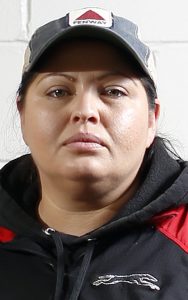
Our Communities. Our Teams. Our Future.
We’re proud to make high school sports coverage free for everyone—because these moments matter. At Maine State Credit Union, we’re here for the people and places that make Maine strong. Let’s Go! Learn more at mainestatecu.org.

The Wells High School Mascot Advisory Committee will recommend discontinuing the use of Native American imagery while keeping the Warriors nickname, based on the results of Wednesday’s secret ballot.

If the recommendation is approved by the Wells-Ogunquit school committee at its June 6 meeting, Wells would become the latest Maine high school to drop Native American imagery.
The voting totals were announced Thursday in a press release from the Wells-Ogunquit Community School District, after the Portland Press Herald had informed the committee it was likely violating open meeting laws by keeping the results secret. The committee’s chair, Rick Coyne, had declined to release results of the voting Wednesday night.
It is unknown how individual members of the mascot committee voted because the votes were submitted anonymously.
The panel was assigned in November to study the issue and then make a recommendation to the school committee.
The decision to address the mascot issue came in the wake of allegations made by Amelia Tuplin, a Micmac from Lisbon, that the behavior of Wells fans at an Oct. 13 football game had mocked Native American culture.
“I’m actually not excited yet. There’s still the school board that has to decide on it,” Tuplin said Thursday. “The process has been great, very educational for both sides.
“I feel like the community and the advisory committee have been very accepting of where not only I came from, but also other people from the indigenous community. We also got to hear their input and I think that was great, finding out that they weren’t coming from a hate-filled, racist point of view, that instead they were coming from more of a school spirit standpoint.”
‘GREAT DECENCY AND INTEGRITY’
Several Maine high schools have eliminated Native American nicknames, including Scarborough (2001), Old Town (2006), Wiscasset (2011) and Sanford (2012). Husson University in Bangor changed its nickname from Braves to Eagles in 2004. Wells and Skowhegan are the only Maine high schools that still use Native American imagery.
John Massaro, 77, was among the first Wells residents to speak in favor of carefully studying the issue of using a Native American mascot at the Nov. 2 school committee meeting when the advisory board was formed.
“It looks like it’s a positive decision,” Massaro said Thursday. “I’m very happy with the result and I’m also very proud of my community for doing what is really right and I’m especially proud of the people who served on the committee who had to make a very difficult decision, but they did the right thing.”
Barbara Giammarino, a former resident of Wells and one of the Native American representatives who addressed the committee during its six-month process, praised Superintendent James Daly for initiating the school’s response and his involvement with the mascot committee.
“He put together a cohesive and fair platform for everyone who is concerned,” she said. “And the town itself and the school showed great decency and integrity. I’m glad that I was a part of it.”
SENSE OF ‘A LAST-DITCH EFFORT’
According to Thursday’s press release, 17 committee members voted to keep the Warriors nickname and eliminate all Native American imagery.
Wells uses two distinct images that have a connection to Native Americans. The most prominent is its “Warrior head,” which shows a Native American in profile with a two-feathered headdress. In 2015, Wells added an alternative logo of a bulbous red “W” with a feather attached.
Three people voted to keep using both the Warriors nickname and the Native American imagery. Four committee members voted to keep the nickname and only the red “W” with the feather. No one voted to discontinue both the Warriors nickname and the Native American imagery.
The possibility of keeping the feather logo was discussed at Wednesday’s meeting. Some committee members said they felt a feather did not represent Native Americans. They saw it as symbolizing education and how learning can help a student “fly” to new heights. Daly and Pierce Cole, the school’s athletic director, countered that the feather was clearly added as a tie-in to the existing Native American imagery and it was important to make a clean break from any hint of continued use of Native American images.
“That almost seemed to be a last-ditch attempt by the people who wanted to keep the mascot to salvage some sort of minor victory out of the whole process,” said Harry Tomah, a Wells resident and Maliseet, who taught at Wells High from 1966-2003. “I thought that was maybe something that could sneak by and I didn’t think it should. That has Indian mascot symbolism, too, and I thought it should be discarded and I’m glad that happened.”
VIOLATED PUBLIC MEETING STATUTE
The majority of the 24 votes (out of the 26 committee members) were cast at the conclusion of Wednesday’s public meeting. Committee members were given a ballot with the four choices and asked to select one. Then the ballots were deposited into a handmade voting box, which Coyne used to collect them.
By using a secret ballot, the advisory committee violated the Freedom of Access Act, according to Sig Schutz, a First Amendment attorney who represents the Press Herald.
“That’s the most egregious possible violation of the public meeting statute,” Schutz said Wednesday night.
On Thursday, the school district countered Schutz’s interpretation. The press release stated that the school district “believes a fair reading of Maine’s Open Meeting Law exempts advisory bodies having no decision-making authority from making a record of public proceedings … permitting the advisory committee’s voting process.”
Schutz reiterated Thursday that voting secretly – regardless of whether a board is advisory – is not allowed.
“Voting in secret is exactly what the public meeting laws are designed to avoid,” he said. “I’m not arguing that they don’t have to make a record of their vote, but that doesn’t mean they can vote in secret. And having a secret ballot is voting in secret.”
Massaro wished the committee’s vote had been public.
“If I had a choice, I would rather people stood up and identified their vote in this situation,” said Massaro, a retired college professor. “Again, we’re supposed to be Warriors and to stand up for what we think is right.”
Steve Craig can be contacted at 791-6413 or:

Comments are not available on this story. Read more about why we allow commenting on some stories and not on others.
We believe it's important to offer commenting on certain stories as a benefit to our readers. At its best, our comments sections can be a productive platform for readers to engage with our journalism, offer thoughts on coverage and issues, and drive conversation in a respectful, solutions-based way. It's a form of open discourse that can be useful to our community, public officials, journalists and others.
We do not enable comments on everything — exceptions include most crime stories, and coverage involving personal tragedy or sensitive issues that invite personal attacks instead of thoughtful discussion.
You can read more here about our commenting policy and terms of use. More information is also found on our FAQs.
Show less